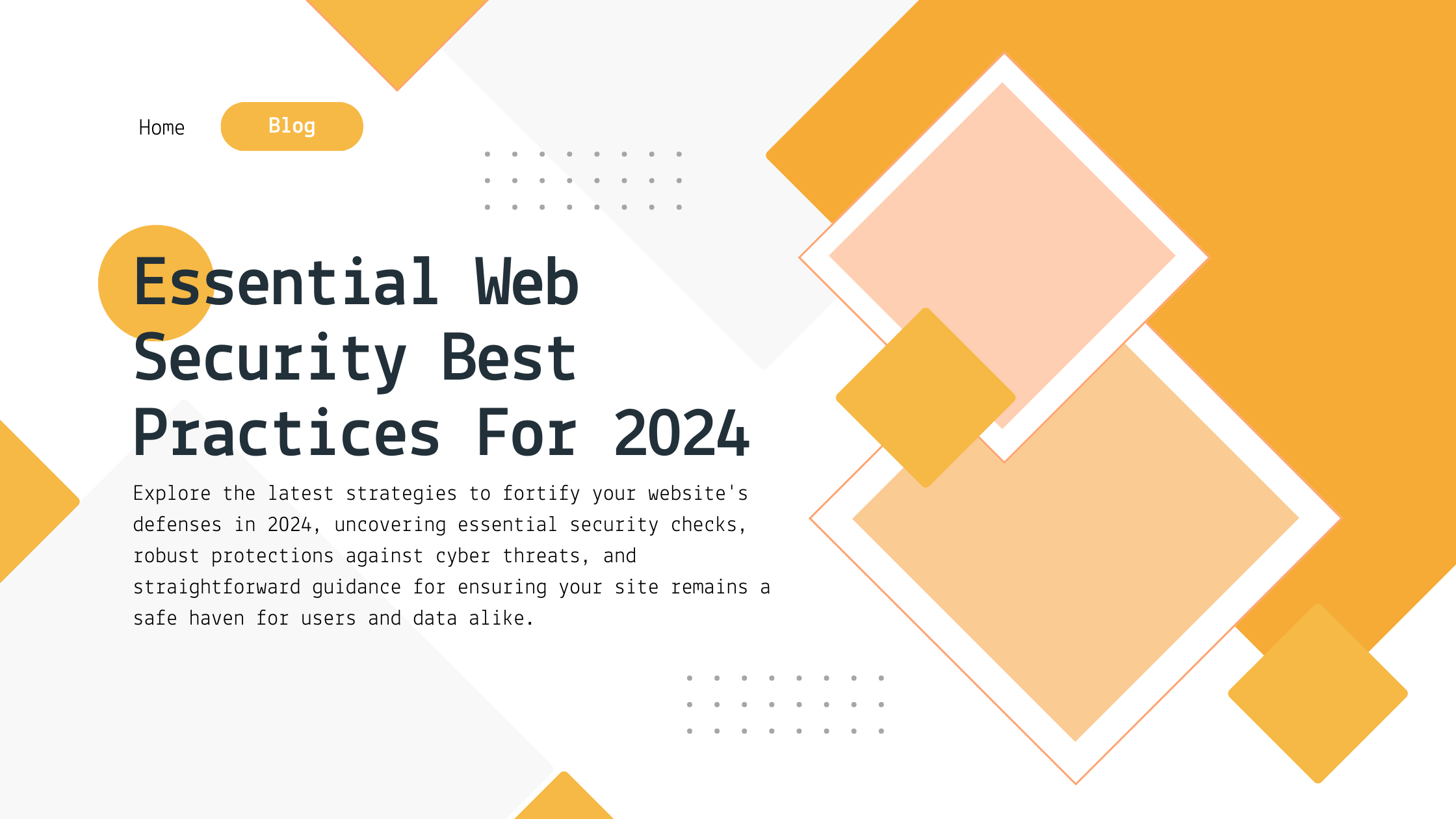Essential Web Security Best Practices For 2024

With the digital landscape constantly evolving, keeping your website secure has never been more critical. Whether you’re running a small blog or a large e-commerce platform, the security of your site affects not just your operation but also the trust of your visitors. This guide will walk you through straightforward best practices for website security in 2024, using easy-to-understand language and focusing on actionable steps you can take today.
Understanding the Stakes
Before diving into the technicalities, let’s talk about why website security matters. A breach can lead to data theft, loss of customer trust, and significant harm to your reputation—not to mention the potential legal ramifications. The good news is that by following a few key practices, you can significantly bolster your website’s defenses.
Regular Website Security Checks
One of the most effective habits you can develop is performing regular website security checks. These checks are like health exams for your site, identifying vulnerabilities before they become problems. Tools like website safety checkers scan your site for malware, suspicious activities, and other security threats, offering peace of mind and actionable advice.
Keeping Software Up to Date
An astonishing number of security breaches could be prevented with timely updates. This includes your website platform, plugins, scripts, and any third-party services you use. Developers frequently release updates that patch security vulnerabilities, so staying current is a simple yet powerful way to protect your site.
Strong Password Policies
It might seem basic, but enforcing strong password policies is a cornerstone of website security. Encourage complex passwords and consider implementing multi-factor authentication (MFA) for an extra layer of protection. It’s a simple step that can thwart a surprising number of attacks.
SSL Certificates
Secure Socket Layer (SSL) certificates encrypt data between your website and your users, safeguarding sensitive information like login details and credit card numbers. Not only does this encryption protect against eavesdropping, but it also boosts your SEO rankings—a win-win for security and visibility.
Regular Backups
In the unfortunate event that your website is compromised, having a recent backup can be the difference between a quick recovery and a prolonged nightmare. Regular backups ensure that you can restore your site to its pre-attack state with minimal downtime.
Educate Your Team
Finally, ensuring everyone involved in your website—from developers to content creators—is aware of basic security principles is crucial. Regular training sessions can help keep your team informed about the latest threats and best practices.
Web Security and its Importance
Keeping websites safe in 2024 isn’t just about deploying the latest tools; it’s about adopting a proactive and informed approach to protect your digital presence. By integrating regular security checks, keeping software up to date, enforcing strong passwords, securing data transmission with SSL, ensuring regular backups, and educating your team, you’re laying a strong foundation for a secure and successful website.
Remember, security isn’t a one-time task but an ongoing commitment. Stay vigilant, stay informed, and your website will not only be a safer place but also a more trusted and valued resource for your visitors.




